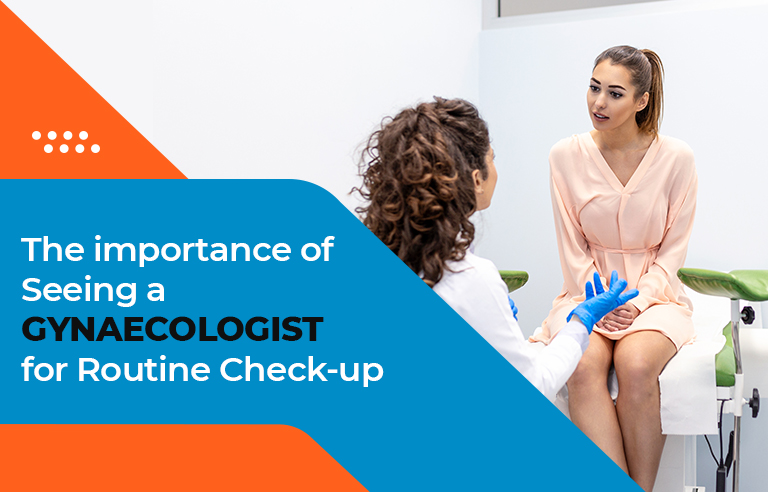
It feels really good to know you are on top of your health. Whether you to see a doctor for routine check-up, or you’re experiencing symptoms, visiting a gynaecologist is important to maintain good reproductive or sexual health.
Are you interested in knowing more? Keep reading and we will take you through everything you need to know.
Topics to discuss:
- When you need to see a gynaecologist
- Symptoms of common gynaecological problems
- What happens during a private gynaecological visit?
- How often you should see a gynaecologist for routine checkups
- Conclusion
The frequency of your gynaecology visit will depend on your age, health and other factors. Ideally:
- Females should schedule their first appointment with a gynaecologist at 16 years of age
- If you are below 21 years and are not sexually active, then you should visit a gynaecologist every other year
- If you are sexually active before the age of 21, you should visit a gynaecologist every year
- If you are a woman and in the age group of 21 to 29 years, you should see a gynaecologist once a year for routine examination and in between visits, if any issues arise.
- Between the age group of 30 and 65, women who are in good health, are not being treated for a disease, and are not pregnant, should visit a gynaecologist every other year.
Symptoms of your gynaecological problems
Apart from conducting annual or bi-annual exams, you need to promptly schedule a visit with your gynaecologist at the private GP clinic in London if you experience:
- Unusual changes in menstruation such as – heavy periods, spotting or multiple skipped periods
- Vaginal or pelvic pain
- Any abnormal breast or vaginal discharge
- Odours that might be a sign of vaginal inflammation, yeast infection, pelvic inflammatory disease [PID], sexually transmitted disease or bacterial vaginosis
What happens during a private gynaecology visit?
A pelvic examination and cervical smear are usually done when you see a gynaecologist for your regular check-up. The purpose of a pelvic examination is to detect any abnormalities such as lesions or lumps and a smear can help to detect any precancerous or cancerous cells in the cervix.
If cancerous/precancerous cells or lumps are found, intervention treatment can help to save your life. At the same time, a pelvic examination may detect medical problems such as sexually transmitted diseases (STDs) or other issues that may threaten your reproductive system. Ask your gynae about private gynaecology costs in London.
How often should you see a gynaecologist for routine checkups?
From the time you start seeing your gynaecologist, you should make an appointment once a year until you reach 29 years. If you are in good health, and have only one sexual partner, you may make an appointment every other year, after the age of 30.
Older women are less likely to recognise the symptoms of gynaecological conditions and so do not make yearly appointments. But even after you reach menopause, it is certainly a good idea to visit the gynaecologist once every other year. They may help to diagnose and treat urinary incontinence, uterine prolapse, and other problems that happen, due to age.
Conclusion:
Discuss any health problems you have with the gynaecologist. Use search terms like, “private gynaecologist near me” when looking for a gynae expert in your area and get you gynaecological problems dealt with quickly.
We are dedicated to helping you maintain your reproductive, and overall health. To know more about our complete gynaecology care, book an appointment today by calling us on 020 70434317.



-min.jpg)

